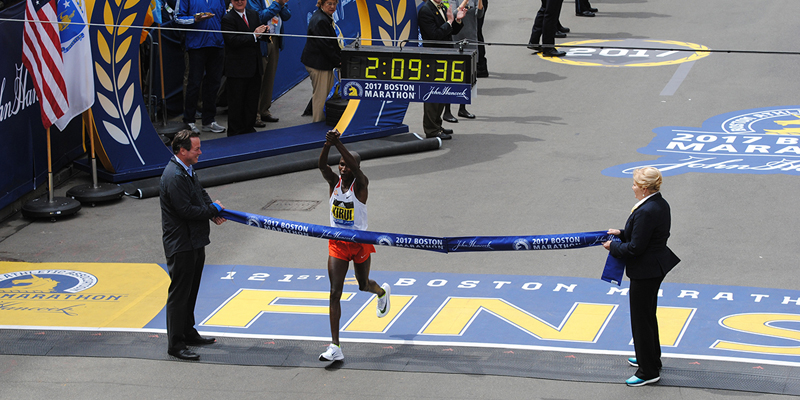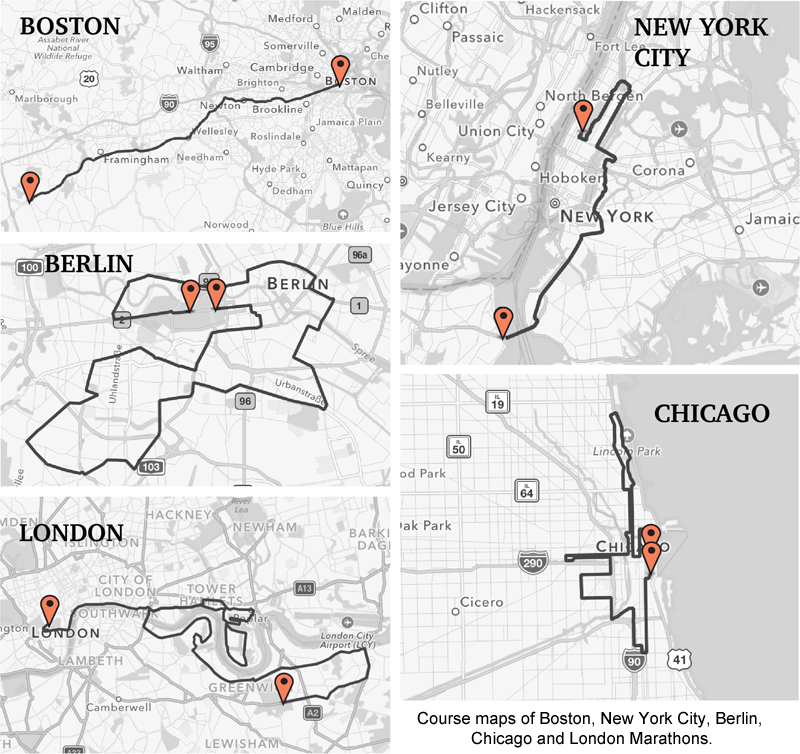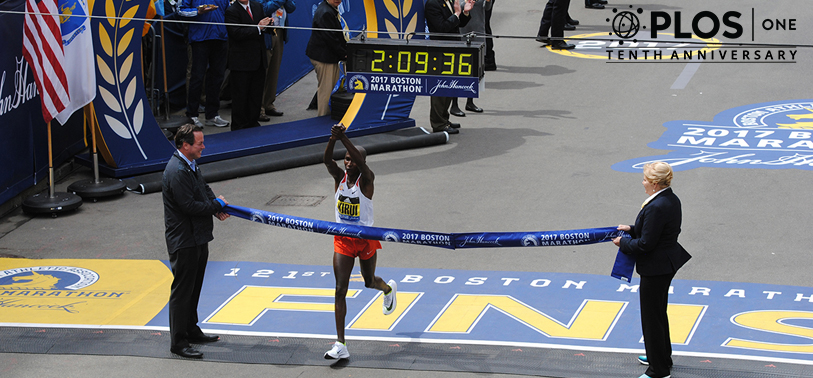Researchers say rules governing records should be changed because weather, not course topography, appears to have most effect on elites’ times in all WMM courses.
The Boston Marathon has been ineligible for records since 1990 due to International Association of Athletics Federation’s rules regarding the course’s net elevation loss and point-to-point format, but researchers have recently shown what seasoned marathoners already know — the route offers only what could be considered an unfair disadvantage.

In fact, their findings confirm times on the Boston course are typically slower than those on other World Marathon Majors courses, including London, Berlin, Chicago and New York, courses that are all record-eligible.
The study, led by researcher Philip Maffetone and published by PLOS ONE, cites race times of the top 10 male and top 10 female finishers of all races in the WMM for the years 2005-2014. London and Berlin were shown to be the first and second fastest courses, respectively, for both men and women, while the top finishing times of men and women at Boston were shown to be typically slower than all other venues. The study, and an accompanying editorial, is available: https://doi.org/10.1371/journal.pone.0184024
In 2011, Geoffrey Mutai ran a 2:03:03 winning time at Boston. At the time it was the fastest marathon ever run, but not eligible as a world record due to IAAF rules. However, according to this new study, the high variability of Boston finish times suggests that Mutai’s run may have been an outlier, likely produced by perfect conditions such as a tailwind and optimal temperatures, rather than course topography.
The men’s world record time was broken three years later in Berlin by Dennis Kimetto who ran 2:02:57. Berlin is the second fastest WMM course and Kimetto enjoyed near perfect race-day weather.
Berlin, London and Chicago have a history of the most number of sub-2:05 finish times for men and sub-2:20 times for women, and the most number of world-record times — with Berlin having a much greater history of these finishes. Given this data, researchers concluded that any of these marathon venues could be considered more advantageous than Boston for faster times.

Researchers also established that weather could produce an unfair advantage on any given day on any course, and appears to be a more significant factor impacting marathon performances than course topography.
Excluding weather factors, the relationship between course elevations and finish times does not indicate the Boston route poses an unfair advantage, they said. In fact, times there are on average slower than other WMM venues, with a higher race-to-race variability than the other races.
With both the fastest times for men and women, and the most world record times, the courses in Berlin and London appear to provide the greatest advantage for faster times in WMM venues.
In an editorial that accompanied the study, Philip Maffetone and Paul Laursen wrote, “With years of finish-time data, the IAAF appears to have arbitrarily set rules regarding elevation and point-to-point being associated with a performance advantage, rather than use existing scientific data.” And that, “This has led athletes, coaches, scientists and others in the sports community, who have known for years that the Boston Marathon is a relatively slow course due to the uphill segments and the steep downhill grades, to refer to these rules as flawed.”
Authors of the study say rules which pertain to weather — rather than topography — would be better at eliminating “fast” courses from world-record eligibility, and that rules which pertain to course topography may exclude courses where these features have no significant impact on finish times.
“In light of the evidence from our study, the best marathon performances and world record times, and criteria used across other sporting venues, the IAAF should reconsider the current ruling in the case of the Boston Marathon’s record eligibility,” Maffetone and Laursen conclude in their editorial. Furthermore, the researchers suggest using their new scientific data, unavailable prior to this study, to support such a rule change.
The new PLOS One study is titled “The Boston Marathon versus the World Marathon Majors” by Philip B. Maffetone, Rita Malcata, Ivan Rivera and Paul B. Laursen.

